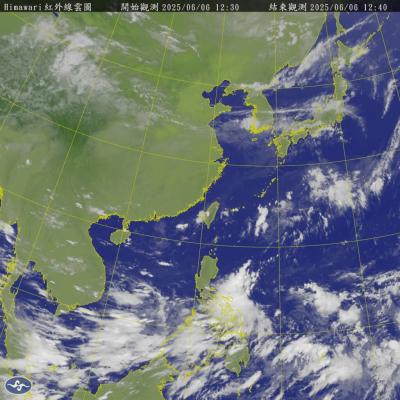Civic groups yesterday criticized the indictment of one of the leaders of the “Wild Strawberries” student movement for violating the Assembly and Parade Act (集會遊行法).
National Taiwan University (NTU) sociology professor Lee Ming-tsung (李明璁) was one of the leaders of the Wild Strawberries, who protested against a violent crackdown on demonstrators opposing last year’s visit by China’s Association for Relations Across the Taiwan Strait Chairman Chen Yunlin (陳雲林). The movement has called for a revision of the act.
The law requires demonstration organizers to apply for permits for using public space from local police as well as the relevant local government, and to pay a deposit at least a week before the planned demonstration.
Both the local government and police may reject an application for a variety of reasons, including concern that the demonstration may threaten social stability.
The Wild Strawberry movement as well as many human rights activists have argued that the right to demonstrate was ensconced in the Constitution and that no permission should be required from the government.
Instead, they said, government and police authorities should help ensure that demonstrations proceed smoothly and peacefully.
However, Lee was indicted for organizing the first sit-in demonstration of the Wild Strawberry movement in front of the Executive Yuan on Nov. 6 last year without first obtaining permission.
“The prosecutors [who indicted Lee] either did so because of political pressure, or because they’re living in the past, when demonstrations were considered something rebellious,” Judicial Reform Foundation executive director Lin Feng-jeng (林峰正) told a news conference after Lee’s court appearance.
Lin said the charges against Lee made no sense, especially considering that nothing happened to NTU professor Tsay Ting-kuei (蔡丁貴), who organized an ongoing pro-independence sit-in around the Legislative Yuan that began in October last year without permission, and that the organizers of a campaign against former president Chen Shui-bian (陳水扁) were found not guilty for leading thousands of people in a march through the streets of Taipei, also without applying for permission.
Huang Wei-lin (黃威霖), a graduate student at NTU’s political science department, asked if Minister of the Interior Jiang Yi-huah (江宜樺), who used to be a political science professor at NTU, had changed his stance since taking a Cabinet position.
Jiang told the Central News Agency in an interview last month that there was room to liberalize the Assembly and Parade Act, but there was no need to call it an “evil law” and push to abolish it.
He was quoted as saying that he had told activists criticizing amendments to the law proposed by the Cabinet that the government would “rather not revise it at all if they keep criticizing it.”
Jiang added that demonstration organizers had to notify local police ahead of time to prevent more than one group from holding rallies at the same time at the same place, which could lead to conflict.
However, while he was still an NTU professor, Jiang wrote in an article published by the Chinese-language Apple Daily in 2006 that people should “examine whether the Assembly and Parade Act is unconstitutional” and not “obey an evil law that may be violating the Constitution.”
He also urged the government not to worry that participants in a mass demonstration would inevitably turn irrational or that demonstrations would create social instability.

STAY AWAY: An official said people should avoid disturbing snakes, as most do not actively attack humans, but would react defensively if threatened Taitung County authorities yesterday urged the public to stay vigilant and avoid disturbing snakes in the wild, following five reported snakebite cases in the county so far this year. Taitung County Fire Department secretary Lin Chien-cheng (林建誠) said two of the cases were in Donghe Township (東河) and involved the Taiwan habus, one person was bit by a Chinese pit viper near the South Link Railway and the remaining two were caused by unidentified snakes. He advised residents near fields to be cautious of snakes hiding in shady indoor areas, especially when entering or leaving their homes at night. In case of a

A tropical disturbance off the southeastern coast of the Philippines might become the first typhoon of the western Pacific typhoon season, the Central Weather Administration (CWA) said. The system lacks a visible center and how it would develop is only likely to become clear on Sunday or Monday, the CWA said, adding that it was not yet possible to forecast the potential typhoon's effect on Taiwan. The American Meteorological Society defines a tropical disturbance as a system made up of showers and thunderstorms that lasts for at least 24 hours and does not have closed wind circulation.

ENERGY RESILIENCE: Although Alaska is open for investments, Taiwan is sourcing its gas from the Middle East, and the sea routes carry risks, Ho Cheng-hui said US government officials’ high-profile reception of a Taiwanese representative at the Alaska Sustainable Energy Conference indicated the emergence of an Indo-Pacific energy resilience alliance, an academic said. Presidential Office Secretary-General Pan Men-an (潘孟安) attended the conference in Alaska on Thursday last week at the invitation of the US government. Pan visited oil and gas facilities with senior US officials, including US Secretary of the Interior Doug Burgum, US Secretary of Energy Chris Wright, Alaska Governor Mike Dunleavy and US Senator Daniel Sullivan. Pan attending the conference on behalf of President William Lai (賴清德) shows a significant elevation in diplomatic representation,

Credit departments of farmers’ and fishers’ associations blocked a total of more than NT$180 million (US$6.01 million) from being lost to scams last year, National Police Agency (NPA) data showed. The Agricultural Finance Agency (AFA) said last week that staff of farmers’ and fishers’ associations’ credit departments are required to implement fraud prevention measures when they serve clients at the counter. They would ask clients about personal financial management activities whenever they suspect there might be a fraud situation, and would immediately report the incident to local authorities, which would send police officers to the site to help, it said. NPA data showed